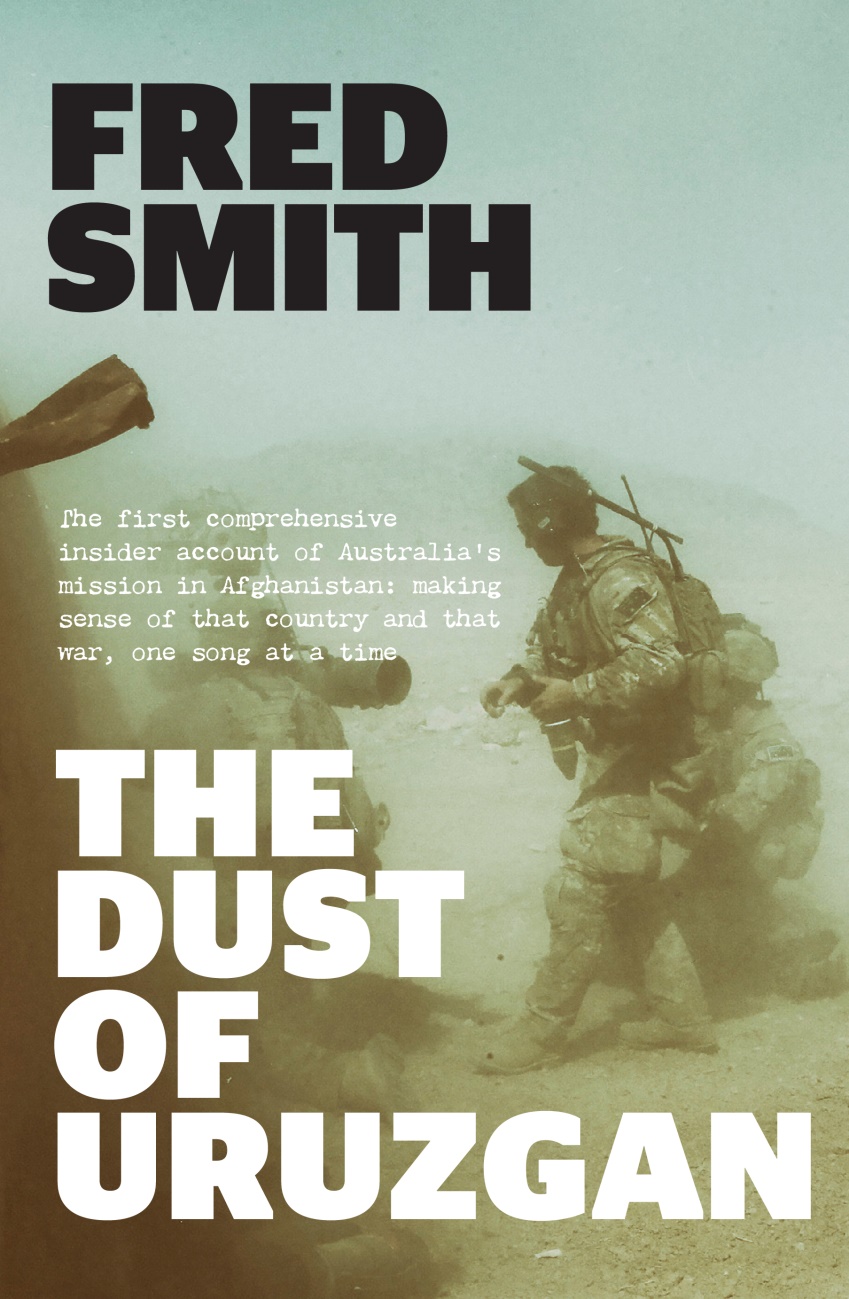Fred Smith, a Department of Foreign Affairs and Trade officer, served for two years over two tours as a diplomat in southern Afghanistan, working alongside Dutch, US and mostly Australian soldiers in Uruzgan Province between 2009 and 2014. His job was to engage with local leaders and to try and comprehend the complex web of tribal and patronage networks that made things tick; and then to bridge the cultural gap and try to get all the stakeholders to work together – classic diplomacy…but in a war zone.
The Dust of Uruzgan is part memoir, part history, and part reflections from working on the Multi-national Base in Tarin Kowt, as well as from a forward Operating Base in the Chora Valley. Smith came to see the province through Afghan eyes, as well as those of the soldiers he worked with. The Dust of Uruzgan offers a sympathetic explanation of coalition efforts in an obscure and impoverished province where tribal leaders conspire against one another in a society devastated by thirty-five years of warfare. With remarkable insight and humour, The Dust of Uruzgan recounts the setbacks and successes of a contingent of Australian soldiers, diplomats and aid workers struggling to make a difference in a place where truth and clarity were often buried, and where many young Australians were killed and wounded.
As Smith acknowledges; “every one of us experienced a different Afghanistan, and this is only my account of what I saw.” Smith’s account is tinged with a worldly perspective, a perceptive and empathetic understanding as well as a wry sense of humour. The Dust of Uruzgan has two distinct narrative threads, but the quality of writing and editing support their harmonious co-existence. The first narrative thread is that of a diplomat working in the field, on contemporary problems, within an Australian ‘whole of government’ context. This is the story of a diplomat, observer, raconteur, confidante, and sometime translator/conciliator between warring Australian bureaucratic tribes. The second narrative is that of an artist – a musician and his songs.
One of Smith’s ‘diplomatic tools’ was a guitar and his ability to write songs. His guitar regularly served as a bridge, not only to the soldiers, but also to the people and tribal leaders of that war-torn region. In the course of his tours Smith wrote a powerful collection of songs about the realities of life for soldiers and civilians in this difficult war. He recorded these in the acclaimed album ‘Dust of Uruzgan’. The album has been described in the Sydney Morning Herald as “remarkably honest and suitably ambivalent about the nature of war… a collection of songs that offers an intimate perspective on the war in Afghanistan.” Colonel Jason Blain, quoted on Australian Story, “I think a real strength of Fred’s music and the way he writes his songs is that he’s actually experienced a lot of what he’s writing about. He’s actually walked in the same footsteps of those soldiers he’s writing about…He ate, he slept, he bathed, he worked, he lived with them and when soldiers died, he mourned with them.”
The Dust of Uruzgan is written in a chronological diary like approach which will resonate with those with direct experiences of Uruzgan, but might seem a little drawn out and complicated to those readers who are not. The book includes a clear map of Uruzgan Province, a list of acronyms and number of colour images. There is no index or notes, but the words to most of the songs he composed are included. Smith makes a number of reflective observations about ‘the mission’ towards the end of the book and these are well-considered and balanced; for example: “25,000 Australians have served in Afghanistan and I think it’s important that we understand their experiences so they don’t walk the land as strangers in the way that a generation of Vietnam veterans did.”
Based on the military nature of the cover image and the claim of the book being “the first ‘comprehensive on the ground account’ of Australia’s mission in Afghanistan” some buyers might mistake this book for a more military centric account. Neither is the book a full or holistic historical account of Australia’s contribution to the war in Afghanistan – that will come with the recently commissioned official history series. The Dust of Uruzgan is well-written, interesting and a thoughtful contribution to the narrative record of Australia’s longest war. But, perhaps most significantly, it is a book about the Australian experience in Afghanistan that isn’t written by a reporter, an ex-special forces soldier or a retired General; and that in itself makes it worth reading.

Contact Marcus Fielding about this article.






